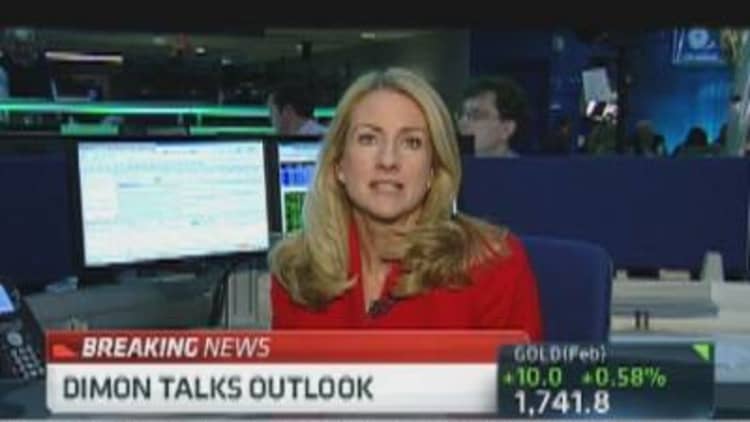The news the Federal Reserve will be publishing the results of its latest stress test next year has sent a ripple of fear through the investing community.
Some see the report separating the good from the bad, but comments from bank chief executives speaking at the Goldman Sachs Financial Services Conference in New York suggest it could prove to be all good.
“It’s a little harsh,” said JP Morgan Chase CEO Jamie Dimon, referring to the test during his keynote presentation on Tuesday. “But in some ways I think it will prove the stability of the system definitively.”
The Fed’s latest test asks the nation’s six largest banks, including J.P. Morgan, to estimate losses they might withstand from a global market shock related to the current turmoil in Europe, based on price movements seen during the aftermath of the 2008 Lehman bankruptcy.
In addition, the central bank will publish the projected impact on the country’s largest 19 banks' revenue, losses and capital ratios should the unemployment rate in the U.S jump to 13 percent and the economy contract 8 percent in a single quarter.
Dimon said he does not expect his bank to have any problem passing the stress test.
Other executives said the same, including Wells Fargo’s CEO John Stumpf, and Richard Davis, CEO of U.S. Bancorp .
“The Fed has an important motive to show the world that U.S. banks can withstand these stress levels,” said Davis.

He said the latest test should eliminate any question as to whether the prior one wasn’t tough enough.
“I also think every bank will make it to five percent,” said Davis referring to projected minimum capital ratio required in this worst-case scenario.
Davis’s comment is a vote of confidence for the likes of Bank of America . The second largest bank by assets behind J.P. Morgan, is seen by some as the bank that could have the most trouble passing the test.
In his presentation on Monday, CEO Brian Moynihan said it was too soon to say if it would pass.
After last year’s stress test, the central bank denied the bank’s request for a dividend increase, concerned its capital levels were not high enough.
The results will be published in March and if there is a downside to the test, Davis believes it will be how the public interprets the report.
Even though all the banks might pass, Davis said investors and consumers will know which banks would be better capitalized and less exposed to losses in a harsh economic environment.
That, he said might prompt both groups to move to the stronger banks.


